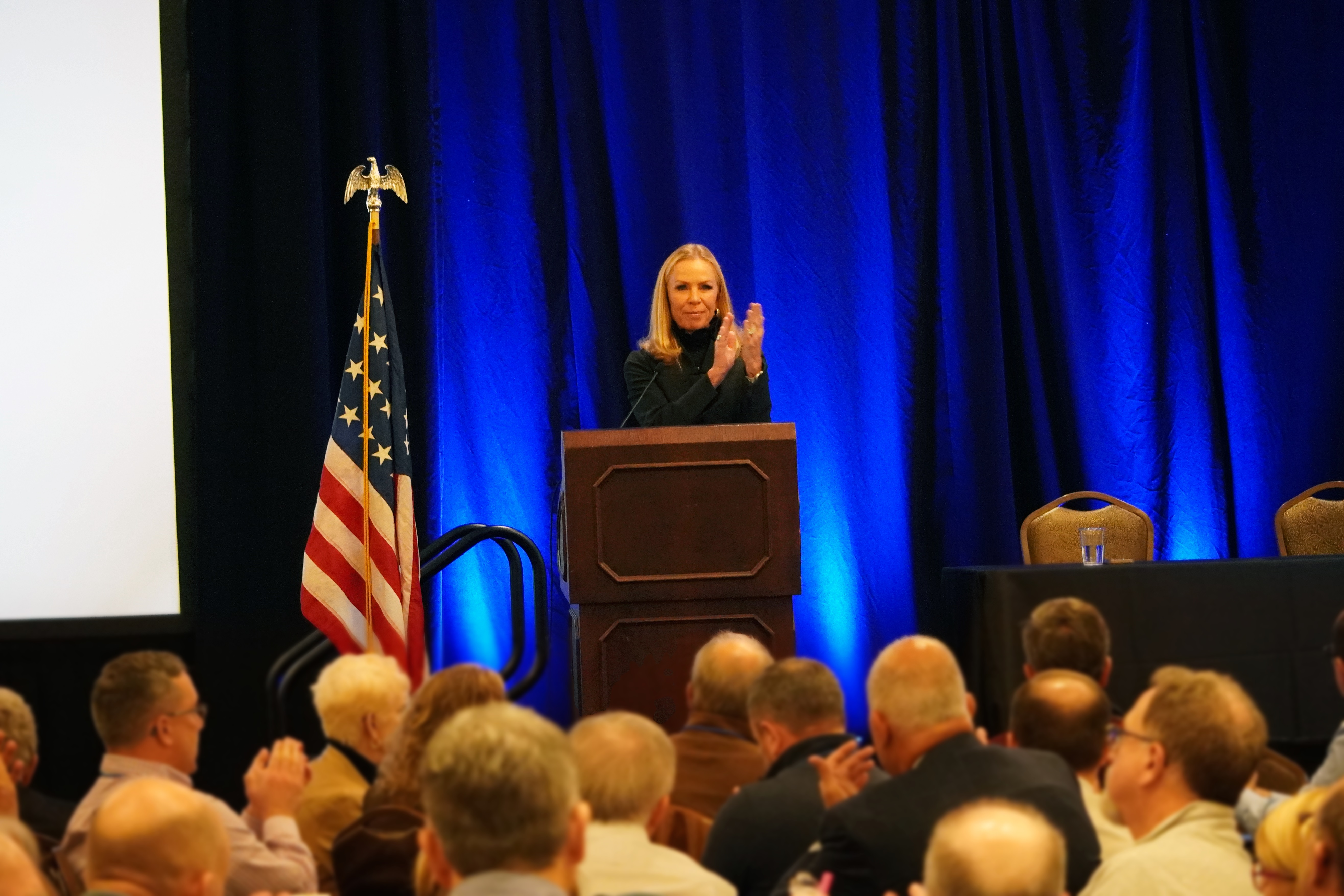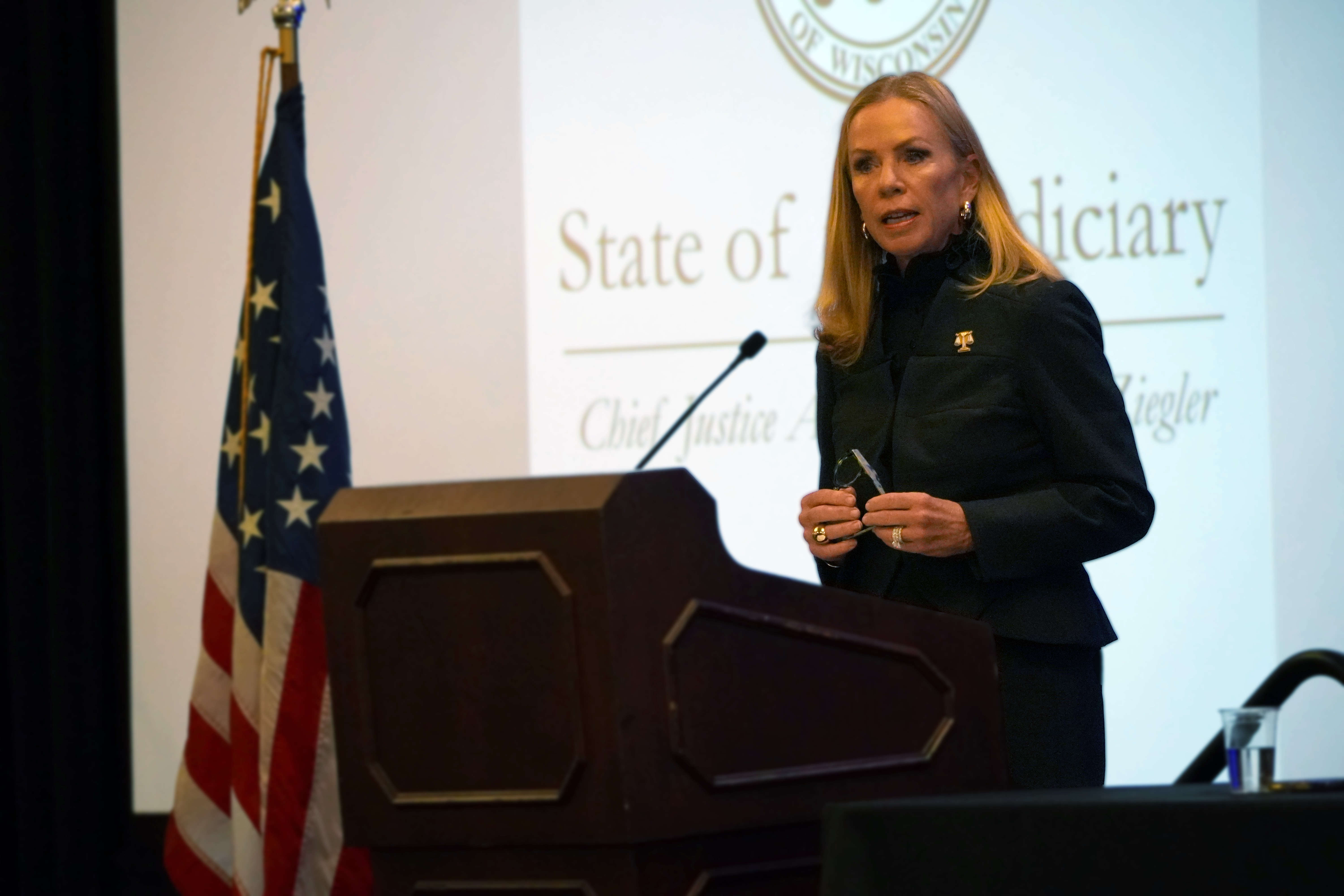Wisconsin Supreme Court Chief Justice Annette Kingsland Ziegler addressed nearly 300 attendees at the 2024 Wisconsin Judicial Conference on November 13 in Elkhart Lake. Her State of the Judiciary speech highlighted this year's conference theme, Access to Justice, emphasizing fair, accessible, and effective judicial processes.
The Chief Justice began by honoring judges who passed away in the past year, including Judge James R. Erickson and Judge Michael J. Skwierawski. She welcomed newly appointed judges and recognized the hard work and dedication of the judiciary in Wisconsin.
Chief Justice Ziegler provided updates on key initiatives, including a recently enacted Judicial Security Package designed to protect judges from intimidation and threats. The package includes three new laws: restricting demonstrations at judges' homes, shielding judges' personal information from public access, and increasing penalties for intimidation. She encouraged attendees to prioritize security training and participate in conference sessions aimed at bolstering courthouse safety.
The address also emphasized mental health initiatives as a key priority. Chief Justice Ziegler highlighted progress since the successful Mental Health Summit in 2023, where judges, legislators, law enforcement officers, and treatment providers collaborated on ways to improve mental health responses in the justice system. Through a grant from the National Center for State Courts, Wisconsin courts are implementing the Sequential Intercept Model to improve mental health services and treatment access. La Crosse County will pilot this initiative in early 2025, with plans to expand to other counties.

"We can and should work to improve and address how our courts and the justice system approach mental health," she said, adding that collaboration across state and local agencies is essential to these efforts.
The Chief Justice also discussed the newly formed Attorney Recruitment and Retention Committee, a group dedicated to tackling attorney shortages, especially in Wisconsin's rural areas. Working with the State Bar of Wisconsin and law schools, this committee is focused on increasing access to legal representation, a critical need in underserved communities where public defenders are scarce. "When we cannot provide members of the public, who are exercising their constitutional right to be represented by counsel, with an attorney, access to justice is seriously compromised," she said. The committee is exploring initiatives such as rural clerkships and other incentives to increase the number of attorneys serving in these regions.
Chief Justice Ziegler highlighted the judiciary's commitment to reducing case backlogs. She acknowledged both the progress made in clearing misdemeanor case backlogs and the ongoing challenge posed by felony backlogs. Thanks to the dedicated efforts of judges and court staff, misdemeanor cases have decreased in many counties, with several now free of backlogs entirely. However, felony case backlogs remain a hurdle, and the Chief Justice encouraged judges to continue collaborating on strategies to improve timely case resolution.
Chief Justice Ziegler reiterated the judiciary's commitment to accessible and effective justice for all Wisconsin residents. "The state of our judiciary is strong," she said, "but we have challenges to address. Working together, we will continue making meaningful progress in each of these areas."
The full text of the 2024 State of the Judiciary address is available here.
Third Branch eNews is an online monthly newsletter of the Director of State Courts Office. If you are interested in contributing an article about your department’s programs or accomplishments, contact your department head. Information about judicial retirements and judicial obituaries may be submitted to: Sara.Foster@wicourts.gov


